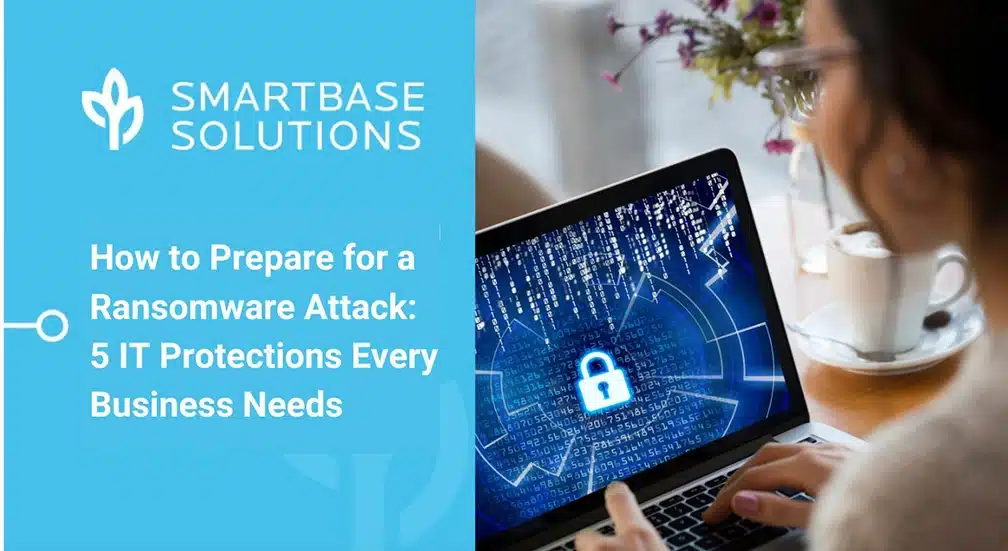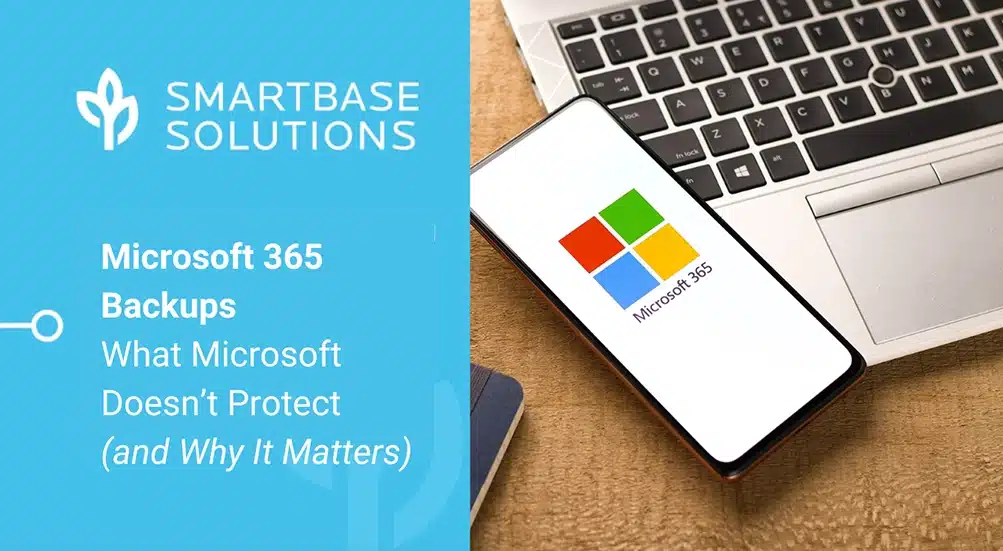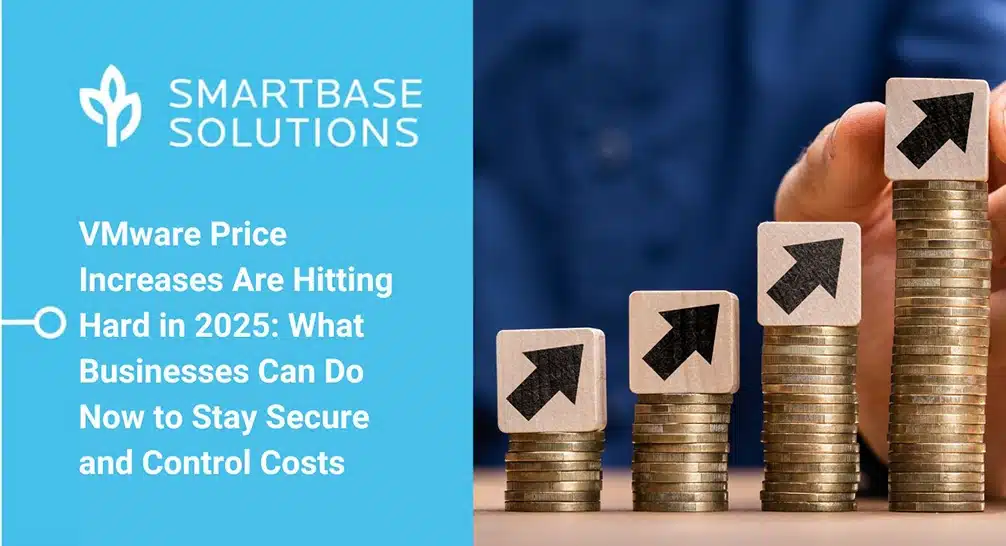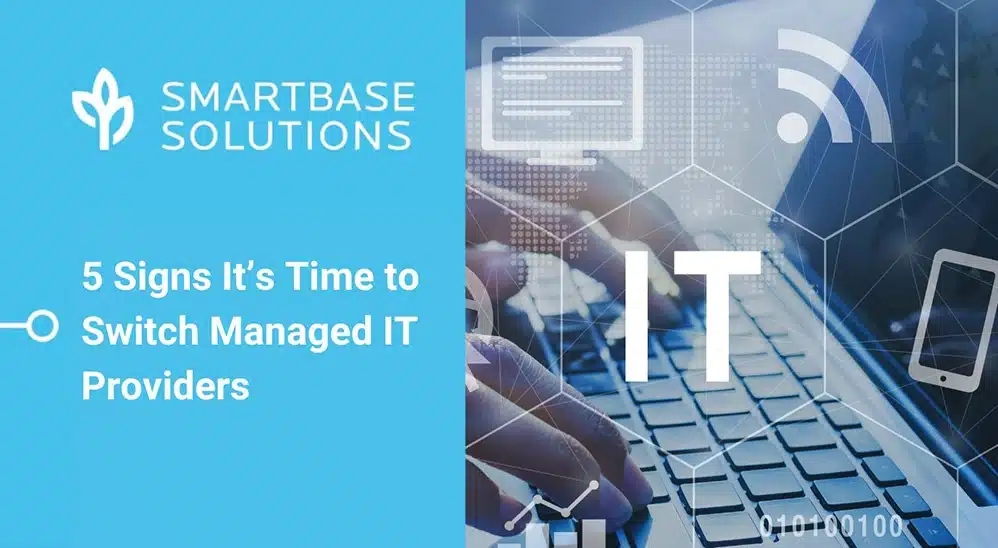In today’s digital landscape, ransomware isn’t a distant threat—it’s a daily reality. Businesses of all sizes, especially in healthcare, finance, and government sectors, are being targeted by cybercriminals who know that downtime, data loss, and compliance penalties come with a steep price.
According to recent studies, the average cost of a ransomware attack exceeds $5.3 million (IBM, 2024). Even more concerning, the average cost of downtime can reach $9,000 per minute (Gartner, as cited by Datto). For regulated industries like healthcare and finance, the risks are even higher—IBM reports that healthcare breaches now average over $11 million, driven by compliance violations, legal exposure, and reputational harm.
At SmartBase Solutions, we specialize in helping high-security organizations prevent, respond to, and recover from ransomware attacks. Here are the five essential IT protections every business needs to prepare before an attack happens.
Five Essential IT Protections Every Business Needs
Immutable, Off-Site Backups
A ransomware attack can lock or delete your data—but it cannot alter an immutable backup. These backups are stored in a write-once, read-many format, meaning once data is saved, it cannot be changed or encrypted by malicious software.
Best practices include:
- Off-site storage or air-gapped environments
- Backup schedules with multiple recovery points
- Testing your restore process at least every six months
Many businesses believe they have backups in place, only to discover during an attack that their backups were infected too. SmartBase helps clients implement ransomware-resilient backups that protect data and ensure rapid recovery.
Advanced Endpoint Detection and Response (EDR)
Laptops, desktops, and mobile devices are common entry points for ransomware. A modern endpoint detection and response system monitors these devices in real time for suspicious activity—such as unauthorized encryption or privilege escalation.
Effective EDR solutions:
- Detect ransomware behavior early
- Isolate infected devices automatically
- Provide detailed forensic logs
- Integrate with SIEM or SOC platforms
SmartBase deploys and manages healthcare- and finance-compliant EDR systems that stop threats before they spread across your network.
Continuous Vulnerability Scanning and Patch Management
Ransomware often enters through known vulnerabilities in software or operating systems—especially those that haven’t been patched. Delays in patching can leave your organization open to exploitation for weeks or months.
To reduce your attack surface:
- Conduct vulnerability scans on all systems regularly
- Prioritize patching based on risk severity
- Automate patch updates where feasible
If you’re in a regulated industry, timely patch management isn’t just good practice—it’s required for compliance with standards like HIPAA and HITRUST.
Access Controls and Multi-Factor Authentication (MFA)
If attackers steal a user’s credentials, they can easily move laterally through your network—unless your access controls stop them. Implementing role-based access and MFA reduces the likelihood of a successful ransomware attack.
Best practices include:
- Granting users only the access they need
- Using MFA for all critical systems
- Regularly auditing account permissions
- Removing dormant accounts immediately
SmartBase ensures our clients’ user access models are both secure and compliant with industry regulations.
Security Awareness Training and Incident Response Testing
Most ransomware attacks start with a human mistake—like clicking a phishing link. That’s why regular employee training and simulated phishing attacks are essential to reducing your weakest link: user behavior.
But education alone isn’t enough. Your organization also needs a clear, tested incident response plan that outlines:
- Who does what during an attack
- Communication protocols
- Legal and compliance steps
- How to restore operations quickly
We help clients develop, document, and test their incident response plans with realistic scenarios and executive-level tabletop exercises.
Frequently Asked Questions (FAQs)
What is ransomware and how does it work?
Ransomware is a type of malicious software that encrypts your files or systems, rendering them unusable until you pay a ransom to the attacker. Some ransomware strains also steal sensitive data before encryption to further pressure victims into paying.
How can I tell if my backups are ransomware-proof?
To be ransomware-resistant, your backups should be immutable (unchangeable), stored separately from your primary network, and tested regularly. SmartBase offers backup audits and ransomware recovery simulations to verify your protection.
What is the difference between antivirus and EDR?
Traditional antivirus software relies on known malware signatures. EDR (Endpoint Detection and Response) tools go further by monitoring behavior, detecting suspicious activity in real time, and providing automatic containment of threats.
Is ransomware protection required for HIPAA or HITRUST compliance?
While not always stated explicitly, many elements of ransomware protection—such as access control, data backup, incident response, and endpoint security—are core to both HIPAA and HITRUST frameworks. Failure to implement these can result in compliance violations.
Can SmartBase help after a ransomware attack has already occurred?
Yes. While we focus on prevention, we also assist with emergency response, forensics, data recovery, and rebuilding secure infrastructure post-incident. Our team works closely with legal, compliance, and insurance partners when needed.
Don’t Wait Until After an Attack to Act
Ransomware moves fast—often in under a minute. But with the right protections in place, your business can stay secure, compliant, and resilient.
SmartBase Solutions specializes in ransomware prevention and disaster recovery planning for healthcare, finance, and other regulated industries. From secure hosting and endpoint protection to compliance-ready backup strategies, we help organizations take proactive steps before disaster strikes.
Ready to evaluate your ransomware risk?
Schedule a free consultation with our cybersecurity team today and take the first step toward total protection.






